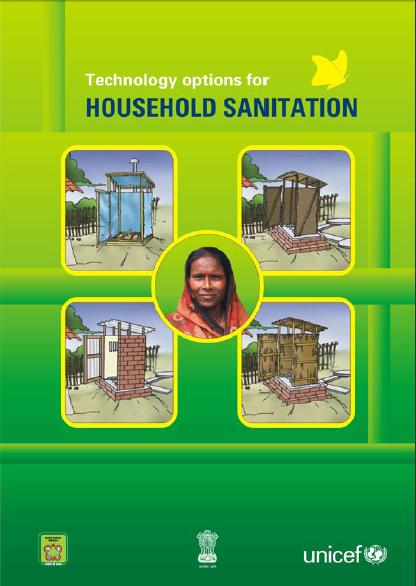United Nations Children's Fund (UNICEF)
A communication and advocacy strategy framework for sanitation and hygiene, by the Ministry of Drinking Water and Sanitation and UNICEF (2012-17)
Posted on 05 Feb, 2013 08:44 PMThe number people practicing open defecation in India is more than 600 million. Though the access to improved sanitation has increased since 2000 the pace of change has been slow. If the current trend continues then it will be difficult for the country to meet its Millenium Development Goal for sanitation. Thus accelerating access to and use of toilets and hygiene practices have become a national priority.
Total sanitation campaign: Budgeting for change series - A report by CBGA and UNICEF
Posted on 20 Jul, 2012 05:56 PMThis report by the Centre for Governance and Budget Accountability (CGBA) and the United Nations Children's Fund (UNICEF), India, attempts to assess the magnitude of public spending on sanitation in India, specifically on the Total Sani
Water Supply and Sanitation: India Assessment – A WHO-UNICEF sponsored study by the Planning Commission of India
Posted on 19 Nov, 2010 08:52 PMThis country-level report on the assessment of drinking water supply and sanitation in India is the result of a collaborative exercise between the Planning Commission of India, the World Health Organization (WHO), and the
Technology options for household sanitation - A report by the Ministry of Rural Development and UNICEF
Posted on 15 Nov, 2010 10:14 PM As part of the Total Sanitation Campaign (TSC), the Ministry of Rural Development under the Rajiv Gandhi National Drinking Water Mission and UNICEF have brought out a compedium that details the various sanitation technologies available to above and below poverty line households .
As part of the Total Sanitation Campaign (TSC), the Ministry of Rural Development under the Rajiv Gandhi National Drinking Water Mission and UNICEF have brought out a compedium that details the various sanitation technologies available to above and below poverty line households .
The authors have divided the report into three subjects - the first being the need for household sanitation and the extent of the problem in rural India. The second section looks at sanitation technology in general with a focus on rural areas and technologies for different conditions. The third part deals with operation and maintenance of such technologies and includes a chapter on components of a toilet.
Successful innovations in solid waste management systems: Examples from five local bodies in Tamil Nadu
Posted on 28 Sep, 2010 11:32 AMThis booklet about the work of Exnora Green Pammal (EGP), produced by UNICEF and published by the Government of Tamil Nadu, illustrates examples of the implementation and impact of solid waste management innovations in five localities in Tamil Nadu. The solid waste management systems in these localities are widely regarded as successes that deserve replication.This document has been produced to inspire and enable more local body authorities to emulate such successes in other parts of the country.
Improving solid waste management services in India is an urgent challenge for all levels of the government. Littering and the indiscriminate disposal of solid waste are widely practiced, polluting India's air, water, soil and inhabitants. Such pollution impedes India's efforts to achieve the Millennium Development Goals (MDG).The nation's measures to combat malaria and other diseases (MDG 6), reduce child mortality (MDG 4), and ensure environmental sustainability (MDG 7) are all hampered by the unsightly and unhygienic conditions created by the accumulation of waste.
Progress on sanitation and drinking water - A report by WHO and UNICEF (2010)
Posted on 01 Jul, 2010 01:45 PM This report by WHO and UNICEF, describes the global status and trends with respect to the use of safe drinking water and basic sanitation, and global progress made towards the Millennium Development Goals (MDGs) in the context of drinking water and sanitation targets. The findings reveal some striking disparities with respect to:
This report by WHO and UNICEF, describes the global status and trends with respect to the use of safe drinking water and basic sanitation, and global progress made towards the Millennium Development Goals (MDGs) in the context of drinking water and sanitation targets. The findings reveal some striking disparities with respect to:
- the gap between progress in providing access to drinking water versus sanitation
- the divide between urban and rural populations in terms of the services
- the differences in the way different regions are performing
- disparities between different socio-economic strata in the society
- gendered differences in the burden experienced in accessing and collection of drinking water
Learning from experience - water and environmental sanitation in India - UNICEF report
Posted on 29 May, 2009 11:23 AMThis report by the